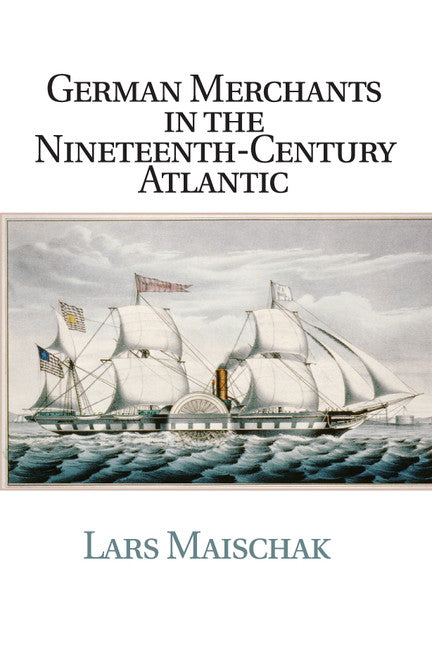Freshly Printed - allow 8 days lead
Couldn't load pickup availability
German Merchants in the Nineteenth-Century Atlantic
Studies the ties between America and Bremen in the nineteenth century, illuminating the role of merchant capital in making an industrial-capitalist world economy.
Lars Maischak (Author)
9781107566996, Cambridge University Press
Paperback / softback, published 8 October 2015
318 pages, 7 b/w illus. 3 maps 14 tables
23.4 x 15.5 x 1.9 cm, 0.52 kg
'… a detailed exposé … [Maischak's] work significantly pushes scholars of the antebellum United States and of circa-1848 Germany to extend their narratives.' Kristin L. Condotta, H-Soz-u-Kult
This study brings to life the community of trans-Atlantic merchants who established strong economic, political and cultural ties between the United States and the city-republic of Bremen, Germany in the nineteenth century. Lars Maischak shows that the success of Bremen's merchants in helping make an industrial-capitalist world market created the conditions of their ultimate undoing: the new economy of industrial capitalism gave rise to democracy and the nation-state, undermining the political and economic power of this mercantile elite. Maischak argues that the experience of Bremen's merchants is representative of the transformation of the role of merchant capital in the first wave of globalization, with implications for our understanding of modern capitalism, in general.
Index of tables, graphs, and maps
Glossary
Prologue
Introduction
Part I. Moorings of the Hanseatic Network: 1. Prudent pioneers: Hanseats in trans-Atlantic trade, 1798–1860
2. The Hanseatic household: families, firms, and faith, 1815–64
3. Cosmopolitan conservatives: home-town traditions and Western ideas in Bremish politics, 1806–60
Part II. Exchanges: In a Transnational World: 4. Free labor and dependent labor: from patronage to wage labor and social control, 1815–61
5. International improvement: Hanseats, Hamiltonians, and Jacksonians, 1845–60
6. Nations, races, and empires: Hanseats encounter the other, 1837–59
Part III. Decline of a Cosmopolitan Community: 7. The end of merchant-capital: crisis and adaptation in a world of industrial capitalism, 1857–90
8. Decisions and divisions: Hanseatic responses to nation-making wars, 1859–67
9. Patriarchs into patriots: Hanseats in a world of nation-states, 1867–1945
Conclusion
Appendix: maps
Sources
Bibliography.
Subject Areas: Economic history [KCZ], Modern history to 20th century: c 1700 to c 1900 [HBLL], History of the Americas [HBJK], European history [HBJD]


